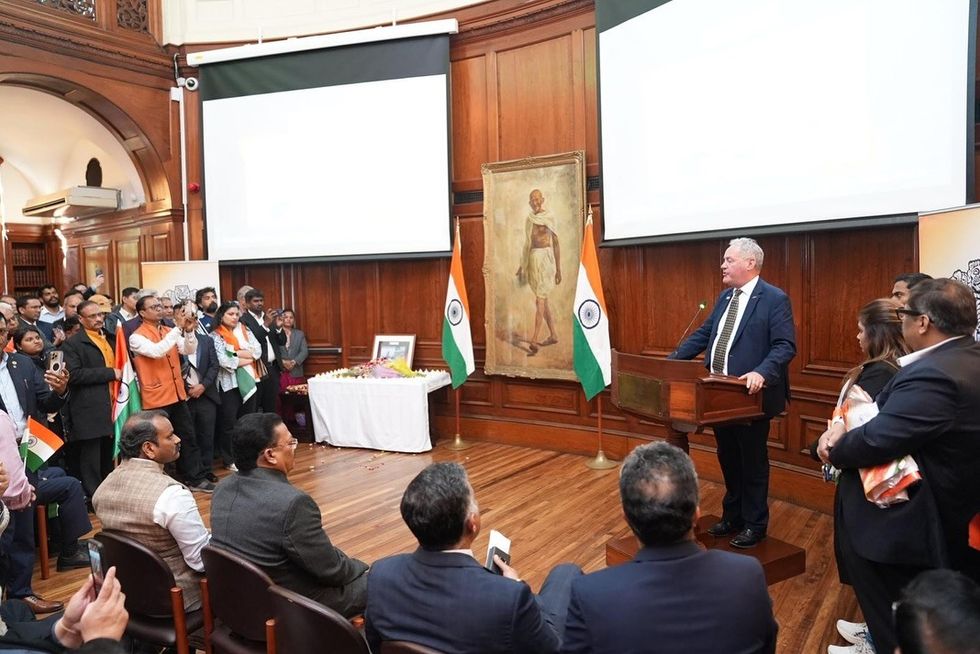by LAUREN CODLING
ASIAN lawyers have spoken of their concern over “shocking” statistics which showed disproportionate numbers of BAME inmates in British prisons.
According to a summary of statistics released by the Prison Reform Trust on Monday (24), 27 per cent of the prison population are from a minority ethnic group, with around eight per cent of them being from an Asian background. This has risen since 2005, when the proportion of Asian prisoners stood at six per cent.
Noting that if the prison population reflected the inhabitants of England and Wales, it would hold 9,000 fewer people in prison, the analysis confirmed research that showed the economic cost of BAME over-representation in the prison system was estimated to be £234 million annually.
It also highlighted figures by the Ministry of Justice in 2016, which showed that BAME men were more likely to be arrested, plead not guilty and be sent to prison by the Crown Court than their white counterparts.
This was previously acknowledged by Labour politician David Lammy in his 2017 report The Lammy Review.
Sailesh Mehta, a barrister at Red Lion Chambers, said the “gross representation” of ethnic minorities had a “huge social and economic price tag”.
He told Eastern Eye on Tuesday (25), there was no straight-forward answer to the issue at hand.
“A partial cause is the tendency of judges to imprison BAME defendants more than others,” Mehta, founder of the Bar Human Rights Committee, said, noting the similar findings highlighted within the Lammy Review.
“There is no political appetite for solving the problem,” he added. “When such levels of inequality are allowed to fester, there is a danger that events will spiral out of control. When this happens, there will be the inevitable siren calls for even harsher treatment of prisoners.”
Noting that a society could be judged by the way that it treated its prisoners, Mehta added: “The shocking facts relating to the way we are treating BAME prisoners is a mirror upon ourselves and is a matter of shame for any modern society.”
Former crown prosecutor Nazir Afzal OBE also noted the high level of Muslim inmates who are in prison.
According to the Prison Reform statistics, the number of Muslim prisoners has more than doubled over the past 16 years. In 2002 there were 5,502 Muslims in prison, by 2018 this had risen to 12,894.45.
Muslims, who make up five per cent of the general UK population, account for 16 per cent of the prison population.
Afzal told Eastern Eye that south Asian and Muslim communities needed to have a “grown up conversation” about why the group were so disproportionately represented in the
prison population.
“Drugs, dishonesty and to a lesser degree sex offending is at its core,” he said. “Yet we don’t talk about it. “We rightly talk about hate crime etc, where we are likely to be disproportionately victims, but hardly ever talk about when we are offenders.”
He stressed that the conversation needs to be acknowledged, otherwise it may have consequences.
“It will continue to deteriorate if we don’t engage with the subject,” Afzal, who is best known for tackling cases involving violence against women and the sexual exploitation of children, warned.
Elsewhere in the trust’s analysis, it revealed that the prison population in England and Wales is almost 70 per cent higher than three decades ago, at more than at 82,400.
It also found that eighty-one of 120 of prisons in England and Wales were overcrowded while assaults on prison staff had more than tripled in only five years.
In response, a Ministry of Justice spokesperson told Eastern Eye: “The over-representation of black and Asian people and those from other ethnic minorities in the criminal justice system is a deep-rooted issue but we are continuing to work hard with the rest of government and other partners to tackle it head on.”
They added that they had asked Lammy MP to do an extensive independent review into how people from ethnic minorities are in the system and had been working to improve diversity among prison offices and judges.
The ministerial department also highlighted that they recently appointed four people to work across the Prison and Probation Service to provide all BAME staff with the support, mentorship and opportunities they need to progress on an equal footing to white staff into senior roles.


















 Bob Blackman MP speaks during the event
Bob Blackman MP speaks during the event